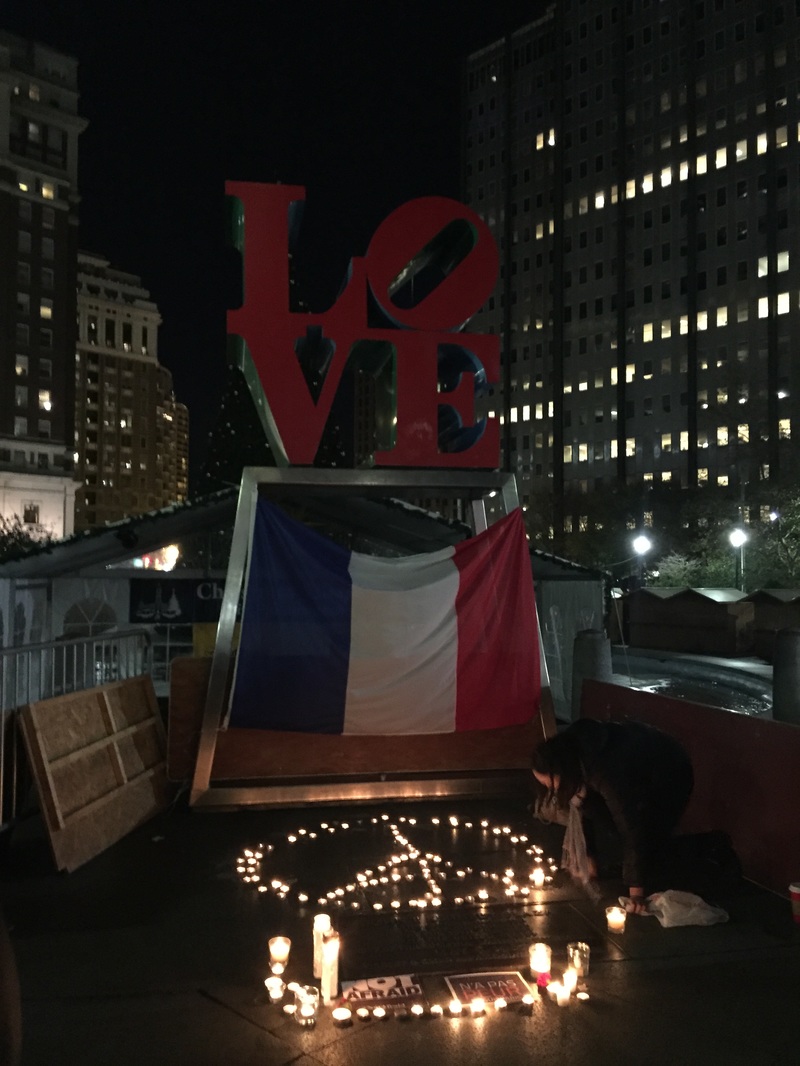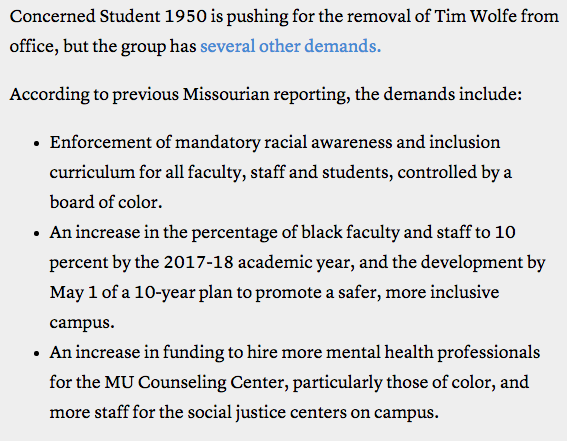|
Fair Trade sounds like one of those fancy unnecessary terms tacked on to the end of someone’s high-end coffee order, “Can I have a grande hot soy half-caf caramel Fair Trade latte?” Fair Trade is actually pretty simple. All it means is that the farmers and workers who create the product are being fairly compensated. Since most of the modern, developed world has had labor laws protecting workers and minimum wages since around 1940, we assume that all countries have these laws and protect their workers. Many still do not. Employers pay their workers as little as possible, and since employment is scarce and some income is better than no income, many are forced to attempt to live on too little. These workers are forced to choose between food, healthcare, education, and family time. To meet their family’s basic needs, much is sacrificed, and workdays become unending.
Fair Trade products are approved by multiple federations and organizations, and ensure that all the workers involved in creating goods are fairly compensated and the wages they earn are livable. This allows workers access to the things they need to live on a day-to-day basis, including nutritious food, adequate healthcare, safe housing, the ability to educate themselves, and since they are compensated fairly, they only need to work a reasonable amount of hours, allowing them time with their families. Many of these workers need their jobs so badly that they will endure years of sexual, emotional, and physical abuse from their employers, as they are too scared to go to their local authorities. Though American farmers may struggle financially, they do not live in fear of being violated with no possible opportunity for recourse. Fair Trade goods ensure that the producers are safe and not in danger of being violated. Though some might argue that this couldn’t possibly be widespread and commonplace, it is important to consider that the United States had to create laws to prevent it. Though Fair Trade goods are readily available in most supermarkets across the United States, the variety of available goods fluctuates. Fair Trade coffee and chocolate are some of the more common products and has been growing in popularity since the popularity surge of Fair Trade goods in around 2002. Less common and more accessible in health centered stores are Fair Trade textiles, fruit, honey, teas, sugar, nuts, wine, and grains. Many people don’t notice that Fair Trade goods are in the aisle, and are just overlooked. It only takes reading the package to notice. Even if a store or organization is not Fair Trade certified, they still likely carry Fair Trade goods. According to a 2013 report by SCS Global Services, 95% of all coffee sold by Starbucks is Fair Trade, and ethically sourced. According to Starbucks, they are working towards a goal of 100%. All of Dunkin Donuts’ espresso beans are also Fair Trade. These coffee beans are carried in most supermarkets nationwide. Another common product is Ben and Jerry’s ice cream. Ice cream is a year round staple in many American households, and is available in grocery stores, gas stations, and convenience stores across the nation. These are international companies, putting their foot down and demanding that the people who make their product are treated fairly, and their basic human rights respected. If such large corporations can find time to bother with the ethics of products, consumers need to pay attention as well. A common defense against Fair Trade goods is usually that the higher price is not practical and isn’t worth it. In actuality, Haagen Dazs ice cream is very similarly priced to Ben and Jerry’s, and not Fair Trade. For the quality of the product, an ethically and socially responsible product is very close in price to it’s less responsible counterpart. Regardless of this, this is not an economic issue, but an ethical one. Even if a Fair Trade product was significantly more expensive than the rest, it is more important to support the companies that are giving their workers a wage that they can achieve basic human necessities with, that they can support their family on. The purchasing power of the consumer shows retailers and manufacturers, what is demanded in a product. If there is a more significant shift toward these socially responsible goods, more socially responsible products will become available to fill that demand, then more farmers and workers will be making enough money to support themselves. Others argue that supporting local goods is more important, and we should put our communities first. Locally made goods are inherently Fair Trade and it is common knowledge that their producers are able to survive on the wages they earn for their labor. It is more important to support Fair Trade certified products, as these are the products that will show producers that a high quality product that also supports the people who make it, is a priority. Once the rest of the world establishes more ethical labor laws, minimum wages, and protection against child labor, the shift back toward locally made goods can be made to support local economies. In the meantime, since many things are just not available as Fair Trade certified, local options are still a great alternative. Originally written for Her Looking Glass.
0 Comments
As the tragic events of an ISIS attack on Paris over the weekend (11/14) continue to unfold, people (in particular Westerners) wonder why such “senseless” acts of violence occur, especially in the heart of Western Europe. This attack was not senseless; it was a very deliberate act to attract international attention and show that ISIS is growing.
If you haven’t heard of the terrorist organization ISIS (also referred to as ISIL or the Islamic State), here’s a quick recap. There is very little known about the group, as it came into existence (as far as global awareness knows) several years ago. The United States and other countries have had a difficult time confronting the Islamic State, as they have use tactics very different from other Islamic terrorist groups like al-Qaeda. All that is known about the group is that it acts upon Puritan Islam interpretations, it is very anti-Western, and it wants to create an Islamic state free of any other religion and culture. ISIS has gained a global awareness for its videotaped executions (in the form of beheadings) of U.S., British, Russian, French, Spanish, and other aid workers and journalists working in the Middle East as hostages (read more here). When looking at the Paris attacks, it is important to understand the significance of what happened. According to CNN, this has been the worst spout of violence in France since WWII (which ended in 1945, exactly 70 years ago). This the worst attack on French soil since WWII. According to the article: In an online statement distributed by supporters Saturday, ISIS said eight militants wearing explosive belts and armed with machine guns attacked precisely selected areas in the French capital.
As a response to the attack, numerous cities around the world lit up their buildings with the colors of the French flag.
The ISIS attacks on Paris are significant for two other reasons in addition to the obvious death toll and security breach in France. First, as a result of the attacks, countries may become more weary of accepting Syrian refugees and IDPs (internally-displaced people). According to the Internally Displaced Monitoring System, there are approximately 7.6 million IDPs in Syria as of July 2015. The individuals responsible for the attack are believed to have posed as refugees from Syria (according to Politico), and may have created challenges for countries accepting refugees in the future.
According to this article (which references this press release), the Governor of Alabama, Robert Bentley, has already issued a statement claiming he will refuse to accept Syrian refugees relocating to the U.S. In Europe, there is a fear that countries will fall into the hands of extreme nationalists to spread Islamophobia and far-right policies (according to this article from Foreign Policy). When looking at the Syrian refugee crisis, it is important to understand that the Syrian refugees and IDPs are escaping the same violence that Paris experienced. ISIS is to Islam as the KKK is to Christianity; the majority of Muslims are moderates and do not believe in the acts of violence or “Islamic beliefs” that ISIS and other Puritan groups use. Islam is different from Christianity because it does not have a central authoritative voice; it is up to individual and group interpretation. While it is very difficult to find unbiased information about Islam, you can read more about the religion here (especially looking at this article on Islam and Terrorism), and here. There is currently a movement among Muslims to dissociate ISIS from Islam. You can check it out here on Twitter under the #ISISisNotIslam. Many Muslims are tweeting that “Islam is not terror” and “cruelty is not Islam,” denouncing ISIS for their interpretation of the Quran and practice of the religion.
Secondly, it is important to remember the other bombings which took place around the same time as Paris, but received little to no attention. Beirut, Lebanon is one of these cities. ISIS suicide bombers killed 43 people and wounded 200 others in an attack on Thursday, according to the New York Times. It is very important to show support for Beirut, as well as Paris, for they lost valuable lives at the hands of ISIS too.
According to another article from the New York Times: Monuments around the world lit up in the colors of the French flag; presidential speeches touted the need to defend ‘shared values;’ Facebook offered users a one-click option to overlay their profile pictures with the French tricolor, a service not offered for the Lebanese flag. On Friday the social media giant even activated Safety Check, a feature usually reserved for natural disasters that lets people alert loved ones that they are unhurt; they had not activated it the day before for Beirut.
In addition, Iraq suffered the third ISIS attack of the weekend. According to the New York Times, at least 26 people were killed and at least 61 were injured in two separate suicide bombings in Baghdad. The New York Times says,
“Since the emergence of Islamic State extremists, attacks in Baghdad have taken place almost daily, with roadside bombs, suicide blasts and assassinations targeting Iraqi forces and government officials, causing significant civilian casualties.” (You can read the rest of the article here).
That being said, when you remember the victims of Paris, also remember the victims of Beirut and Baghdad. No attack is any more or less important than the other, and no attack deserves more or less recognition from the global community.
You may have noticed some recent articles online about the Mizzou threats against minorities on the University of Missouri campus. According to MIC:
“In just the last 90 days, the Mizzou campus has been rocked by a series of racial events that many have accused school leadership of allowing to go unexplained, under-investigated or both. In September, the student body president, Payton Head, who is black, was harassed near the campus and repeatedly called a "nigger." Eleven other students, members of the school's Legion of Black Collegians, were also called the slur by a white student, while campus security that witnessed the incident reportedly did nothing. In October, a swastika painted in human feces was found on a dorm wall.” (You can read the rest here).
One graduate student, Jonathon Butler, has taken to twitter to explain his anger with UM President, Tim Wolfe, and why he should resign from his position. (Note: Wolfe officially resigned November 9th).
Butler wrote this tweet in response to a confrontation that occurred between the group Concerned Students 1950 and Wolfe (prior to his resignation). The below video, uploaded by Concerned Students on October 16th, illustrates the confrontation.
_Social justice vlogger Kat Blaque recently shared the following screenshot to her Facebook page, depicting an e-mail sent to a professor regarding concerns over personal safety. His response is very disheartening.
Posted by Davey D Cook on Tuesday, November 10, 2015
While some faculty members have reacted insensitively to their students valid concerns, UM football coach Gary Pinkel has been praised for his response. According to the Huffington Post;
“‘My players - they’re my kids, I love those guys,’ Pinkel told reporters following the resignation of Wolfe. He said the boycott, triggered by Wolfe’s handling of several racial incidents, was an ‘extraordinary’ circumstance that made football a secondary priority.
He also tweeted the following photo and caption to further show his support;
According to The Atlantic, Concerned Students 1950 has made demands to heighten racial awareness in the community and attempt to address the racism that plagues the UM campus.
(Above image from The Atlantic)
Many supporters and protesters have claimed that racism on the UM campus is far from over. Racism against minority populations isn’t exclusive to Missouri; it happens across the country. Underlying racial tensions and institutionalized racism have made it more difficult than before to address this inequality and end violence and discrimination based on race/ethnicity. At this point, one of the best solutions to combat the incidents at UM is to support the protestors, call for the school (faculty, students, and administration) to bring more attention to the incidents and address them, and continue raising awareness of the events. With so much attention on UM and with the recent resignation of Wolfe, the administration will have no choice but undergo a thorough investigation and begin implementing measure to ensure these occurrence do not happen again. To read up on what is happening in Mizzou, check out this article by the Huffington Post and this blog post from Progressive KC. If you want to follow the story, I suggest following #ConcernedStudent1950 on Twitter. NOTE: We are not affiliated with any of the articles or photos or people linked and mentioned in this post. All quotes belong to their corresponding links and are not our own. |
What we're thinking about. Archives
November 2019
Categories |



 RSS Feed
RSS Feed
